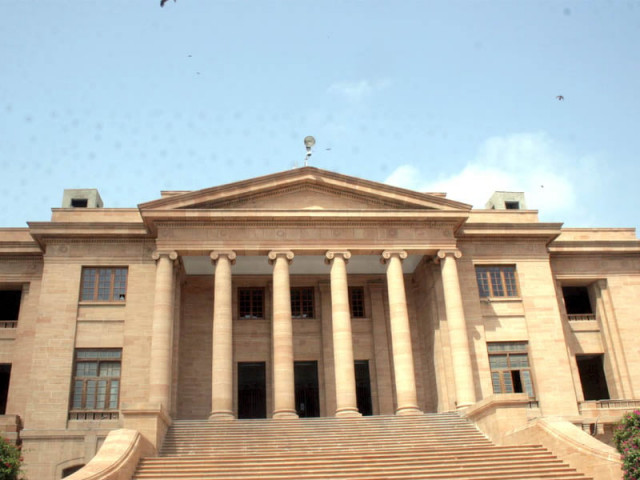Legal minds pick through the system’s weaknesses in convicting terrorists
SHCBA event was filled with debates and discussions of witness protection to terrorism.

Legal minds pick through the system’s weaknesses in convicting terrorists
“A terrorist doesn’t sprout [from] a tree or fall with the rain or [is] deposited by a hail storm. He grows out of a long process of gestation, indoctrination and training.” These were the opening words of Sindh High Court’s Justice Shahid Anwar Bajwa on day 2 of a conference on combating terrorism through the law on Saturday.
The event was organised by the Sindh High Court Bar Association in collaboration with the Sindh High Court at a hotel and featured an impressive lineup of legal minds.
The speakers discussed terrorism, its causes, differences between a terrorist and freedom fighter, the role of the courts, protection of witnesses, international terrorism and its causes and repercussions on the decisions taken by the judiciary.
“The judgments of courts have international repercussions, as from the outside they are viewed as acts of state,” remarked Advocate Ahmer Bilal Soofi, adding that caution should be exercised as some cases could strengthen the case for intervention in Pakistan. “The court or judiciary are independent within the state but not from the state.”
Non-state actors are attempting to acquire unlawful control over the territories of Pakistan and are committing offences against the state, said Soofi while talking to The Express Tribune later in the day. He said that any Pakistani who joins militants or agrees with their ideologies is actually violating Article 5 of the Constitution under which everyone within Pakistan must remain loyal to the state and constitution.
While highlighting an international perspective, Soofi said that there was a concern about Pakistan that it was unable or unwilling to handle terrorists which is when the international community can take the responsibility to consider an intervention.
“We need to change our paradigm on terrorism. This is not conventional terrorism, it is actually a war on the state and instances of terrorism are manifestation of that war,” he added.
The first female lawyer to complete a PhD in law, Dr Raana Khan, spoke vociferously against corruption and its link to the current law and order situation. “Corruption attacks the foundation of democratic institutions, corrodes government institutions and starves the economy.” Criminals take advantage of the differences in the legal systems, the clash between bureaucracies, the lack of an ethical approach of public officials.
For his part, Barrister Zeeshan Adhi focused on the difference between money laundering and terrorist financing. Terrorist financing may involve taking ‘white money’ earned lawfully or through what he called “micro-criminality” and transferring it to a person who may support terrorist activities. But, Adhi points out that while Pakistan may already have laws against money laundering, it has to develop stringent ones that tackle terrorist financing. He also argued in favour of public trials as they could allow the world to see the strength of the judicial processes through the rule of law.
Published in The Express Tribune, September 30th, 2012.



















COMMENTS
Comments are moderated and generally will be posted if they are on-topic and not abusive.
For more information, please see our Comments FAQ